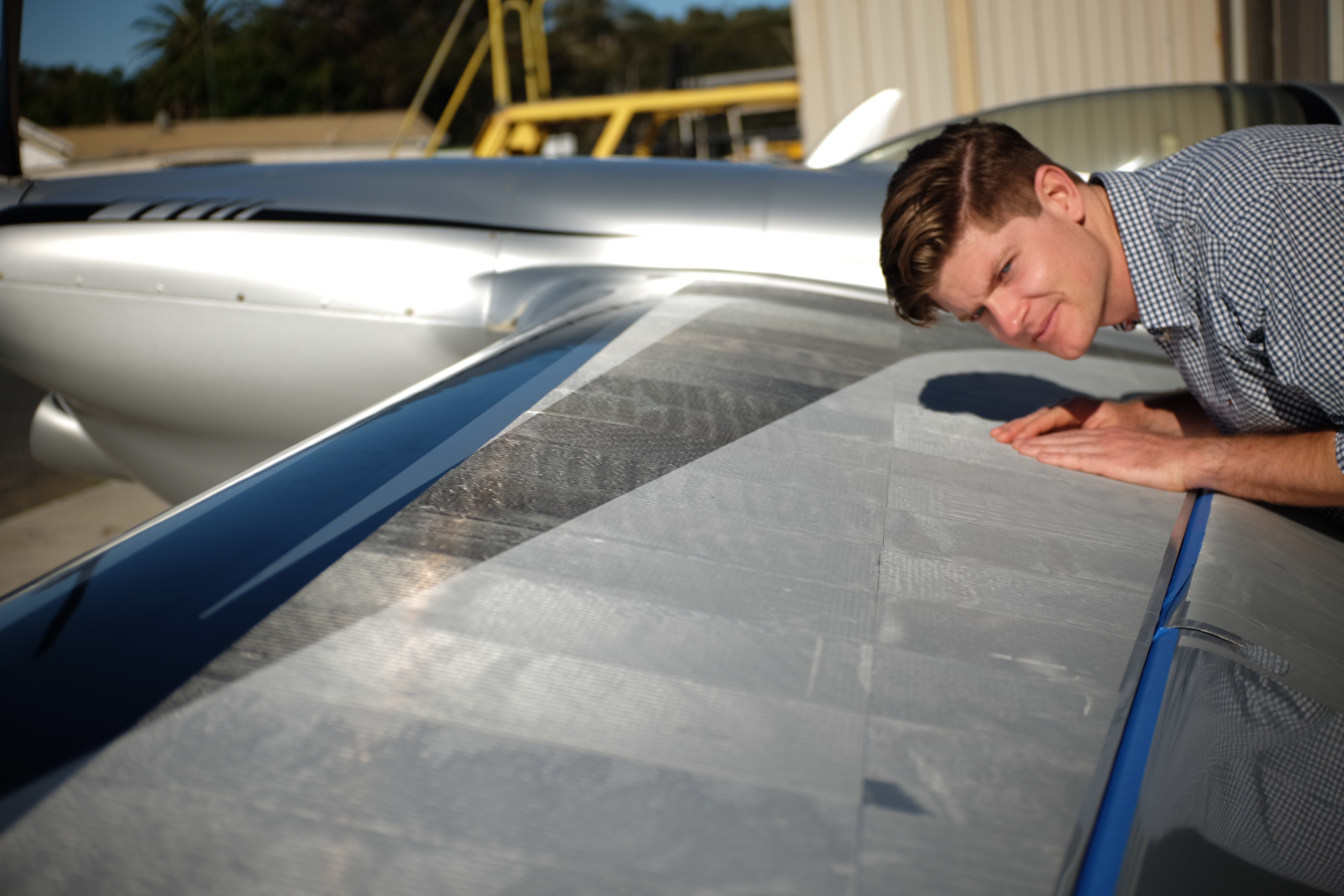aviation
Aug 3, 2024
MicroTau: How Shark Skin-Inspired Technology is Pioneering Efficiency in Aviation
An exploration of biomimetic surfaces inspired by natural structures, examining their potential to significantly improve aircraft efficiency and reduce environmental impacts through innovative design techniques.

MicroTau
In the ever-evolving world of aviation, innovation is a relentless pursuit. As the industry grapples with environmental challenges and the rising demand for air travel, companies like MicroTau are making creative strides, and EcoAero had the opportunity to meet with their communications manager, Duncan Bell, on their recent advancements. Founded by CEO Henry Bilinsky, MicroTau operates in Sydney, Australia, where they leverage nature’s own designs through the production of biomimetic surfaces using a technological breakthrough: the Direct Contactless Microfabrication (DCM). Akin to microchip manufacturing, it uses photolithographic fabrication with UV-curable coatings to create biomimetic surfaces.
At the heart of their innovation is MicroTau’s riblet films. Unlike the smooth surfaces of typical aircraft, shark skin is covered with microscopic structures known as dermal denticles. These denticles, resembling tiny teeth, create grooves that reduce drag by preventing vortices from forming on the surface. This founded the basis for the riblet design in which the grooves were recreated using the DCM, to be adhered to the surfaces of aircraft and offering a potential efficiency improvement of 4%. Today, MicroTau employs approximately 25 people, all dedicated to pushing the boundaries of biomimetic surface design. Beyond aviation, the technology holds promise for various applications, allowing surfaces to mimic the desirable properties of plants and animals. For example, Duncan tells us of some other applications that are being explored, such as lotus leaves’ self-cleaning ability, pitcher plants' antimicrobial properties, and the nano beetles’ ability to harvest water from desert air through their microscopic structures.
However, one of the critical challenges in applying biomimetic surfaces is ensuring their durability and longevity under extreme conditions. Aircraft face high temperatures on tarmacs and freezing conditions at cruising altitudes, along with significant impact forces. To meet these challenges, MicroTau rigorously tests its products according to material specifications, often developing new standards due to the novelty of its technologies. MicroTau's riblet films have undergone extensive testing, including flight tests which, though not under the most rigorous conditions, have demonstrated a significant improvement in efficiency — a promising result that underscores the potential of this technology.
MicroTau's long-term goal is to roll out its technology across the commercial aviation sector. With fuel costs accounting for 30% of airline expenditures and emissions rising due to increased air travel, the demand for efficient solutions is more pressing than ever. MicroTau aims to be at the forefront of this effort, offering airlines a way to cut costs and reduce their carbon footprint. Looking ahead, MicroTau plans to scale up its manufacturing capabilities significantly to be able to supply more planes across the globe.
As the aviation industry continues to evolve, MicroTau stands out as a beacon of innovation, blending nature’s designs with cutting-edge technology. With its sights set on revolutionizing aircraft surfaces, MicroTau is poised to make a lasting impact on both commercial and defense sectors, paving the way for a more efficient and sustainable future in aviation.
Image courtesy of MicroTau, used with permission.
More in
aviation

aviation
Jul 26, 2024
FLIMAX: Pioneering All-Electric Aviation for a Zero-Emission Future
A review of advancements in battery-electric aviation technology, emphasizing the potential for electric aircraft to transform regional connectivity and significantly reduce short-haul aviation emissions.

aviation
Apr 16, 2025
Arthur Brown: Powering the Future of Flight with Electric Propulsion and Air Taxi Innovation
A dive into emerging electric propulsion technologies and the economics of urban air mobility, focusing on silent electroaerodynamic thrusters, autonomous air taxis, and the critical cost drivers shaping the next generation of sustainable aviation.